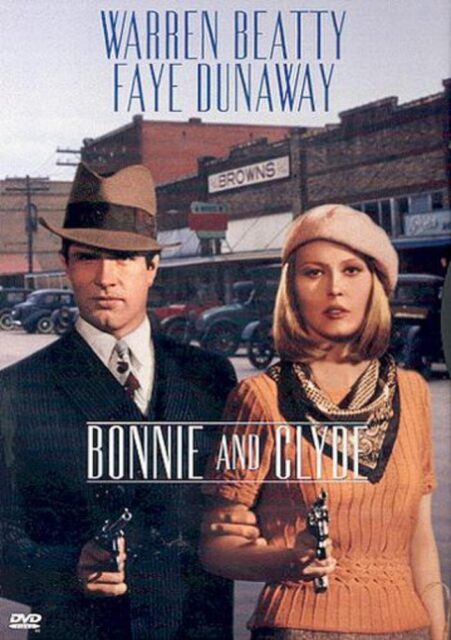
Fifty-five years. It makes me shake my head in disbelief when I think about how long ago it was. But 1967 was a good year. It was a good year for birthdays—everyone’s favorite DFW Urban Wildlife blogger was born that year. And it was also a very good year for movies.
One of the biggest hit movies of 1967 was the groundbreaking film Bonnie and Clyde, starring Warren Beatty, Faye Dunaway, Gene Hackman, Denver Pyle, et al. Coincidentally, this movie was also one of the first DVDs I ever purchased; snatched from a bargain bin as an impulse buy for only a few dollars.
The movie tells the story of the crime spree conducted by Bonnie Parker, Clyde Barrow, and their gang in the early 1930s. The film is considered culturally significant for a number of reasons. A contemporary of movies like The Graduate and Easy Rider, the film marked an important change in tone developing in Hollywood as the 1970s approached. Here is how Wikipedia describes its significance…
Bonnie and Clyde is considered one of the first films of the New Hollywood era and a landmark picture. It broke many cinematic taboos and for some members of the counterculture, the film was considered a “rallying cry”. Its success prompted other filmmakers to be more open in presenting sex and violence in their films. The film’s ending became iconic as “one of the bloodiest death scenes in cinematic history.”
Wikipedia
For those of us living in North Texas there is another, even more immediate reason, to be intrigued by this hallmark film… Much of Bonnie and Clyde was shot right here, in and around the Dallas/Fort Worth Metroplex. North Texas was the obvious choice when the folks in Hollywood started scouting locations. The real Bonnie and Clyde were native Texans, and much of their crime spree centered around the hub of 1930’s Dallas/Fort Worth. What’s more, in 1966 when the movie was produced, many of the filming sites—small country towns and neighborhoods—were little changed in the 30 odd years since the real Bonnie and Clyde made their mark on history. The look and feel of these places was still—by and large—historically accurate.
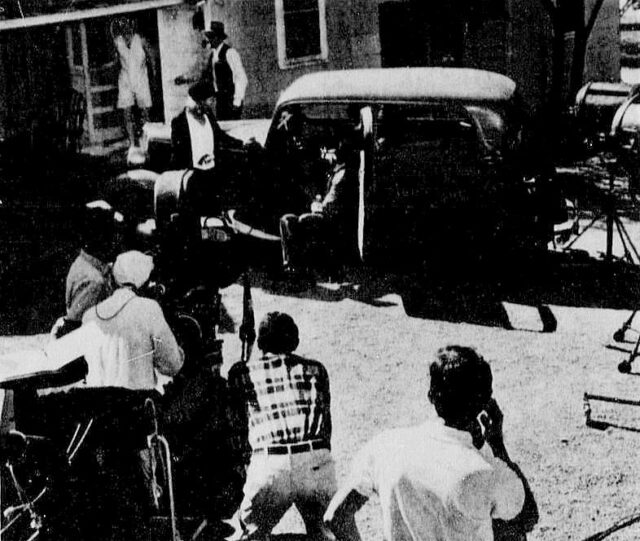
There were roughly a dozen scenes filmed on location here in North Texas. Remarkably, many of the buildings are intact and identifiable even into the present day. A good number of the balance were still standing until just a few years ago. Some of those that are gone can still be seen on Google Earth, using their Show Historical Imagery tool.
For this article my objective was to visit as many of these movie set locations as possible in order to document the way they appear today. I will review the movie scene by scene, and compare and contrast the past and the present. Where notable, I will relate anecdotes about each location, and discuss how they fit into the history of North Texas and the story of the real Bonnie and Clyde. But remember while you read this, that unless stated otherwise, the locations covered in this article are in reference to the 1967 movie Bonnie and Clyde. They are NOT actual historical locations of crimes committed by the real Bonnie and Clyde. The full story of Bonnie and Clyde is much too involved to be told in a two hour Hollywood movie. To learn more about these infamous American criminals, Wikipedia is a fine place to start…
WIKIPEDIA – Bonnie and Clyde
Bonnie’s House
32°23’35.9″N 96°51’29.7″W (32.393313, -96.858257)
The movie opens at Bonnie Parker’s house. A bored Bonnie (Faye Dunaway) glances out her bedroom window and catches Clyde Barrow (Warren Beatty) nosing around her mothers car, which is parked on the street. This is how the pair first meet in the 1967 film. In actuality, it is thought that the real Bonnie and Clyde met for the first time in 1930 at a friend’s house located on Herbert Street in West Dallas. At this time in her life Bonnie was living with her mother, whose house was also located in Dallas.
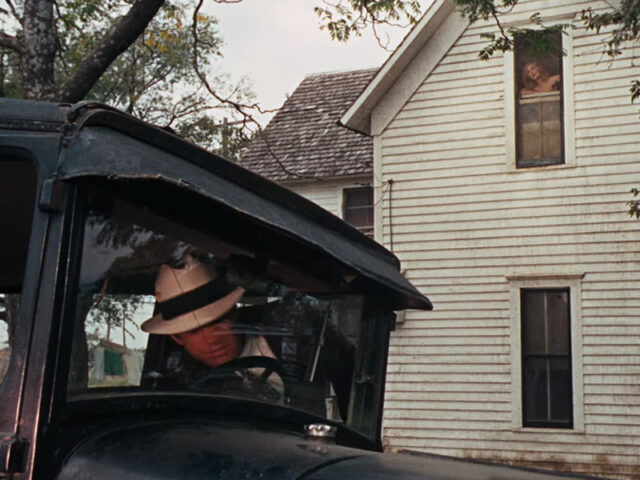
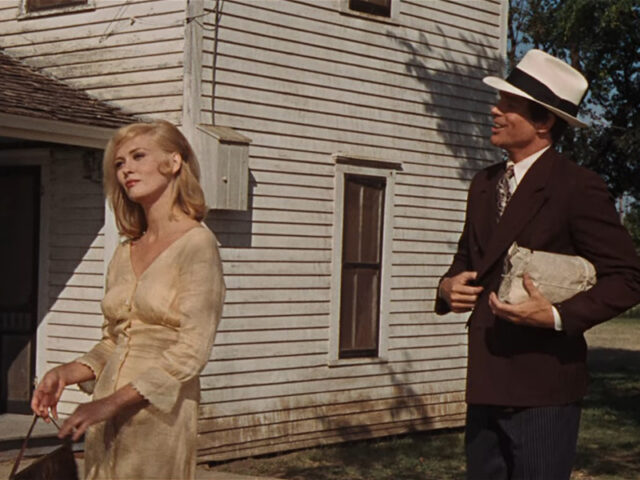
For the movie, a house in Waxahachie was chosen to stand in for her mother’s Dallas home. This house is still present today in Waxahachie’s West End Historical District. Some time in the intervening years the house has been fully renovated, and many additions have been made, but it is still clearly identifiable as the same house used in the film. It is a beautiful home.
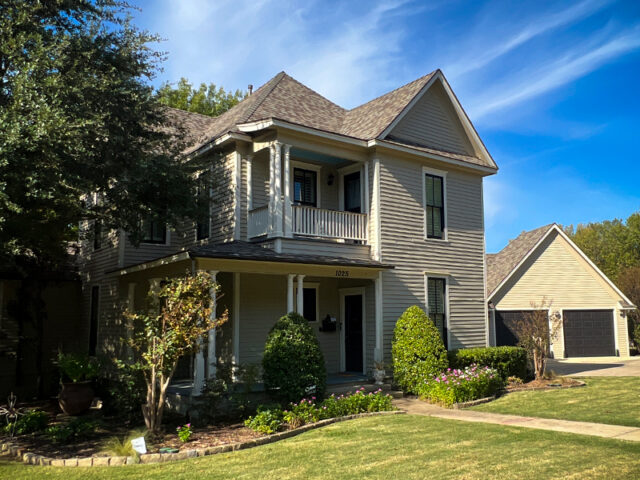
Roscoe Wilson Barber Shop
32°26’00.2″N 97°06’12.8″W (32.433388, -97.103557)
In the movie, after the two first meet, Clyde invites Bonnie to stroll into to town for a Coca Cola. In the next scene we find the new couple walking along a row of old store fronts. This would have been in the early years of the Great Depression, and as might be expected, many of the stores are closed and boarded up. The one exception appears to be Roscoe Wilson Barber Shop. Even in hard times, people need haircuts.
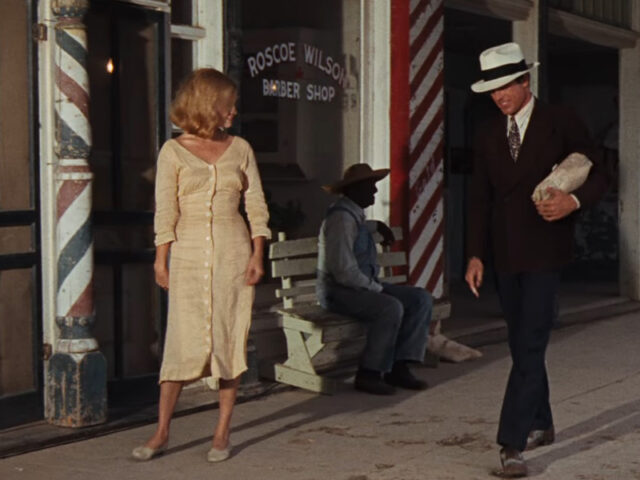
This part of the movie was filmed on the town square in Venus, Texas just southwest of Dallas. The buildings here have undergone significant changes since 1967. Updates and reconfigurations make it difficult to pin point the exact store front used as Roscoe Wilson Barber Shop, but enough of the old architecture is still present to be able to verify with certainty that this is where the scene was shot.
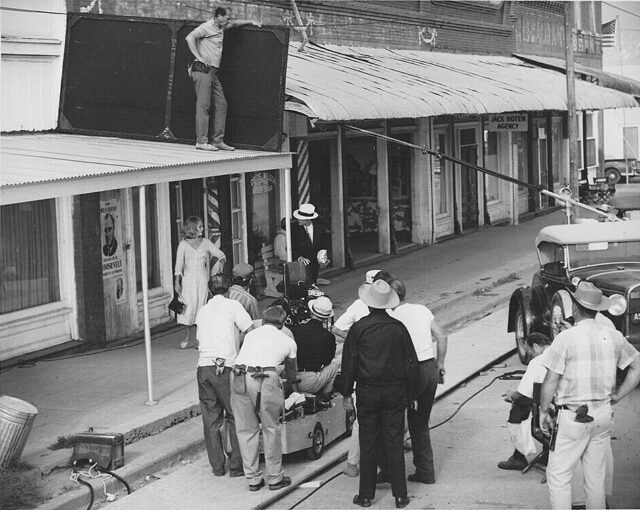
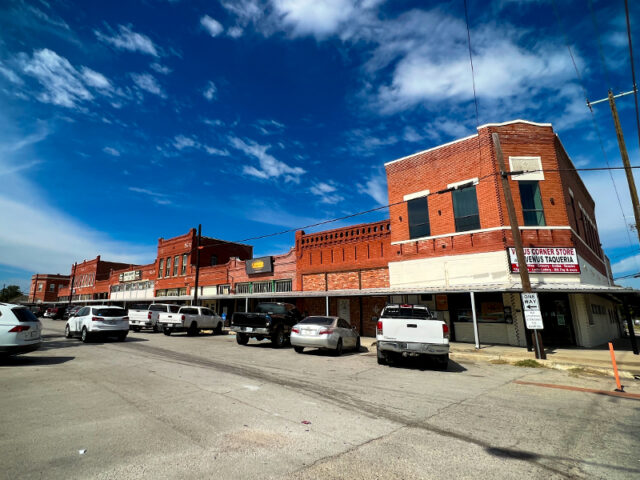
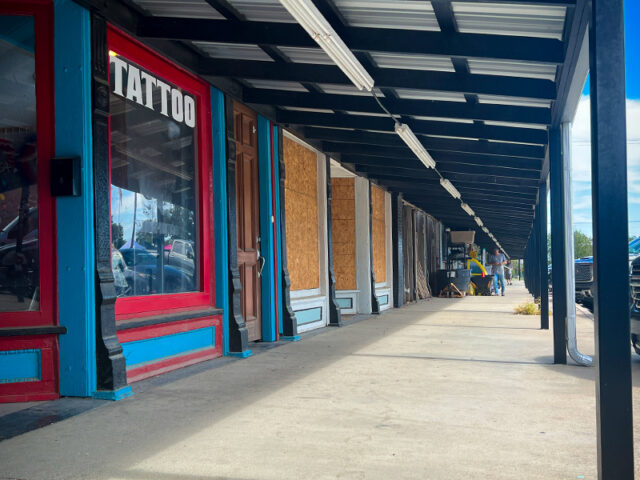
Ritts Groceries Robbery
32°25’58.8″N 97°06’15.2″W (32.433005, -97.104218)
Next, in a move designed to impress Bonnie with his credentials as a criminal, Clyde stages a robbery of a small grocery store. This scene was also filmed in downtown Venus. Today, the building that housed the grocery store now serves as a church annex. As you can see in the pictures below, much has changed in the interim, but many things are still the way they were at the time of filming in 1966.
And for just a little more you can follow the link provided below. Clicking it will take you to a charming home movie recorded on the town square while the movie crew was filming in Venus, Texas. It’s worth a watch…
TEXAS ARCHIVE – Charles A. Wyly Home Movies – On the Set of Bonnie and Clyde (c.1966)
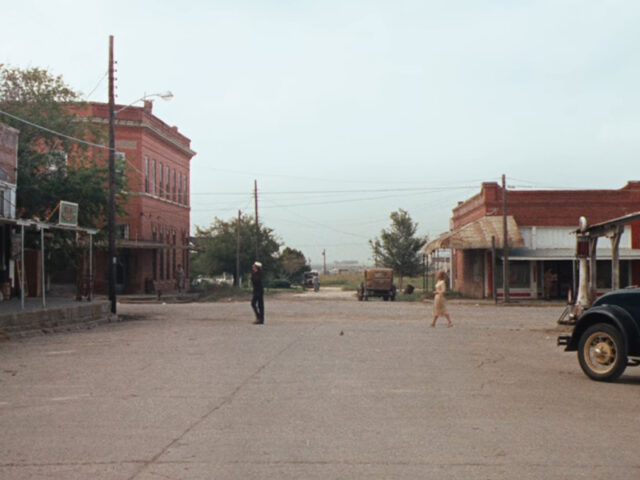
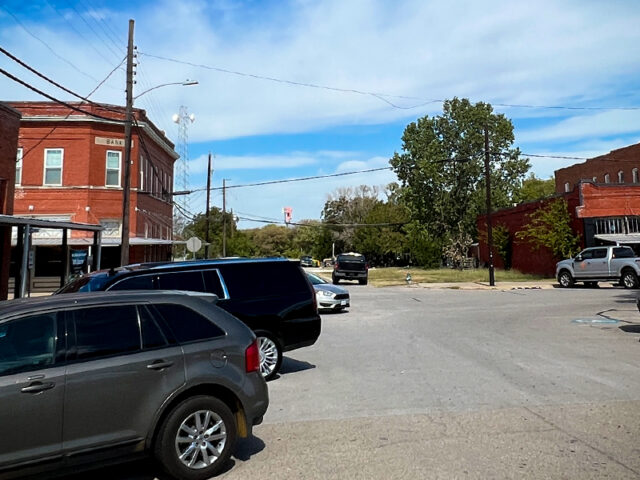
in front of the building that served as Ritts Groceries in the movie.
Notably, the bank building and many of the utility poles are still present.
The small building on the righthand corner of the intersection
and the gas station (which was a set piece) directly
across from the grocery are missing.
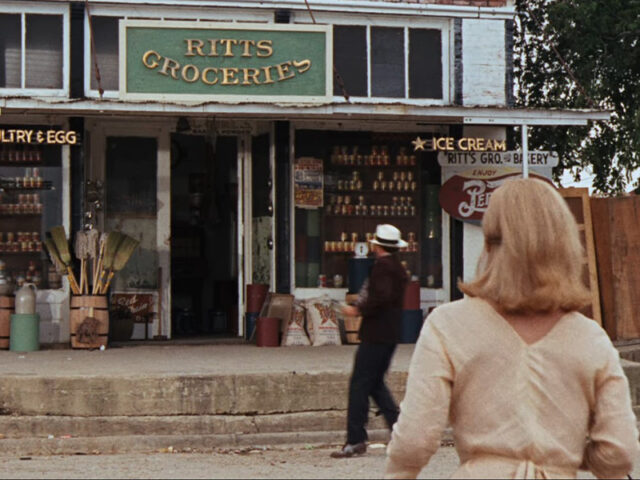
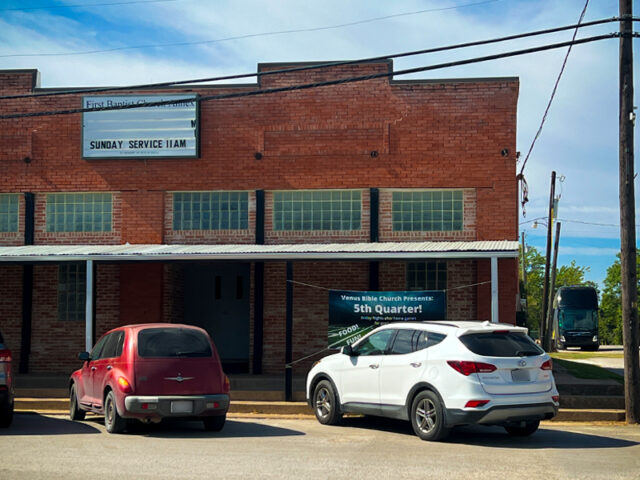
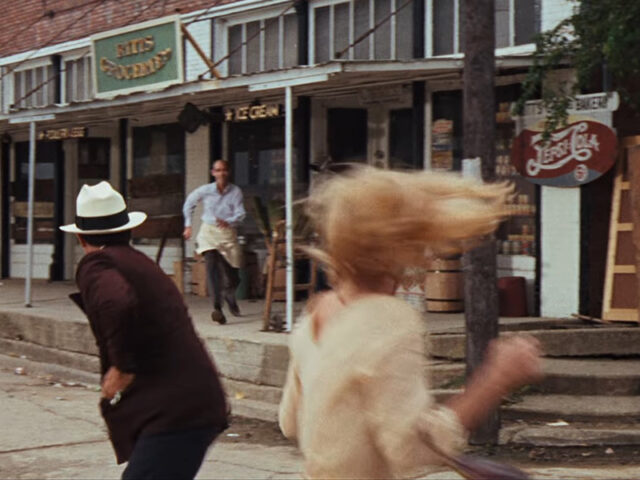
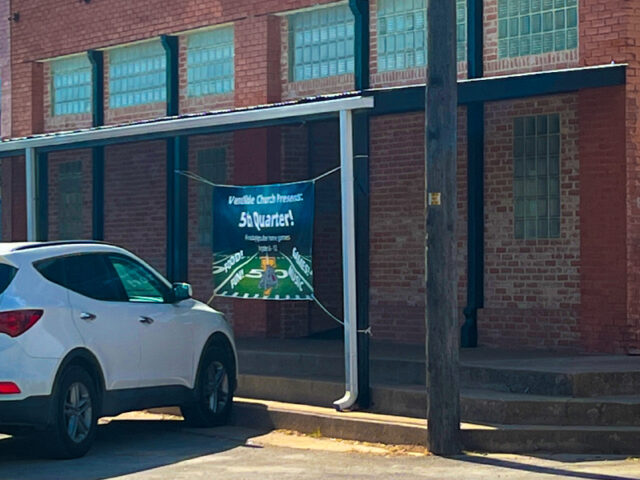
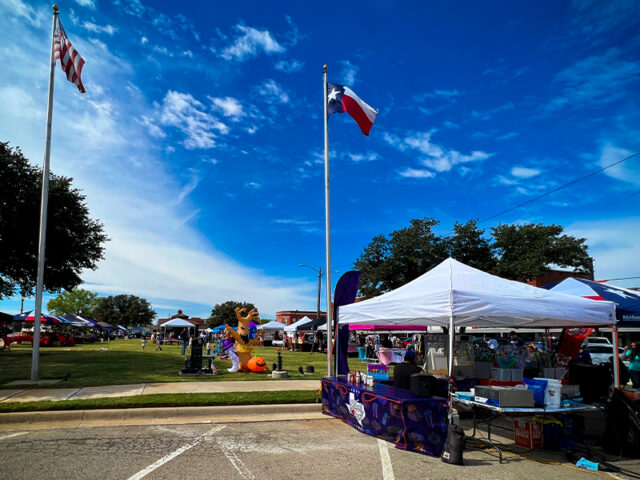
their annual Halloweentown Fall Festival.
Ritts Groceries is in the line of buildings visible in the far distance.
Lavon Café
33°01’39.1″N 96°26’03.8″W (33.027522, -96.434382)
After holding up the grocery store, Bonnie and Clyde stop at a lonely roadside café, where they bond over burgers and further cement their budding relationship. This scene was filmed northeast of Dallas in the small town of Lavon. The old Lavon State Bank building that served as the café in the movie is still standing, and its location still feels almost remote as it did way back in 1967. The building is considered historically significant, as it is the only remaining historic structure on the original site of Lavon, Texas. A marker is present on the property describing the early development of the town. Another sign, located on the opposite side of the building, relates the story of the Lavon State Bank. See both in the pictures included below…
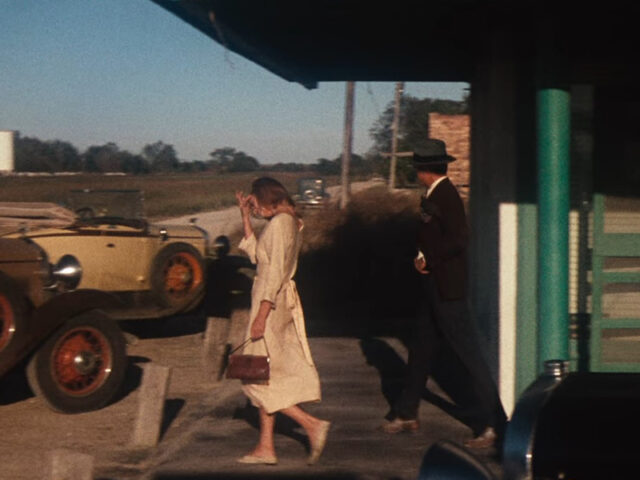
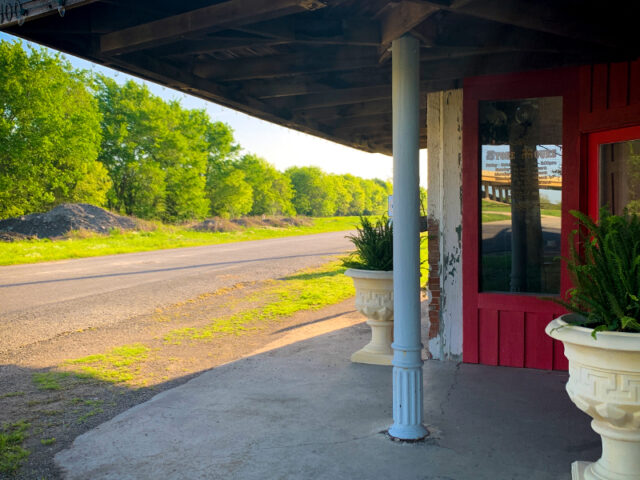
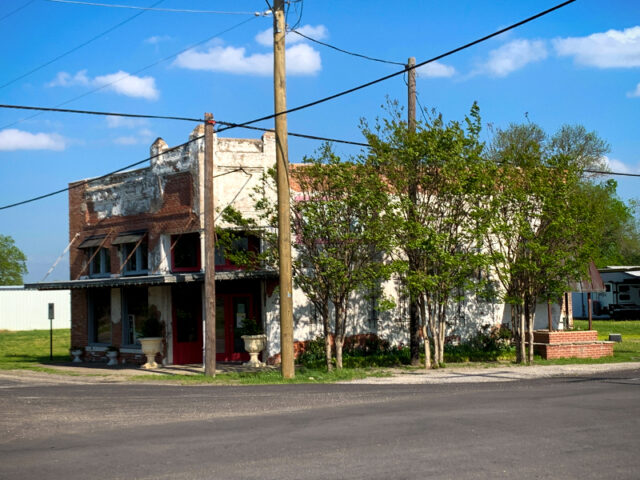
Repossessed Farmhouse
32°54’14.3″N 96°33’07.0″W (32.903966, -96.551947)
In the next scene, Bonnie and Clyde—now on the run from the law—spend the night in an abandoned farmhouse. The following morning they encounter the former owner of the house, and in a poignant exchange the dejected farmer relates how the bank had repossessed his home—a casualty of the Great Depression. He had come with his family, and everything they still owned loaded in the bed of their jalopy truck. They had returned for one last look at their home before they moved on to whatever else the hard economic times had in store for them. This was the point in the film when the fictional Bonnie and Clyde—in a moment of empathy—decided they would become bank robbers.
The old farmhouse—located in Rowlett, Texas at the time of filming—has not survived into the present, but when exactly the old house was taken down is not clear. During my research I found an article about the house and its role in the movie. The story appeared in the Garland Daily News and was dated October 16, 1976. Evidently, the homestead was located on a major intersection in Rowlett along with several other buildings, but I could not determine which structure it was from the aerial photographs I was able to review. If the house is the building I suspect, then it appears to have been demolished around 1979. This seems likely given the dilapidated state of the structure as seen in the photograph accompanying the news story. But if the house somehow remained intact longer; it certainly did not survive the construction of the President George Bush Expressway built right on top of the original intersection.
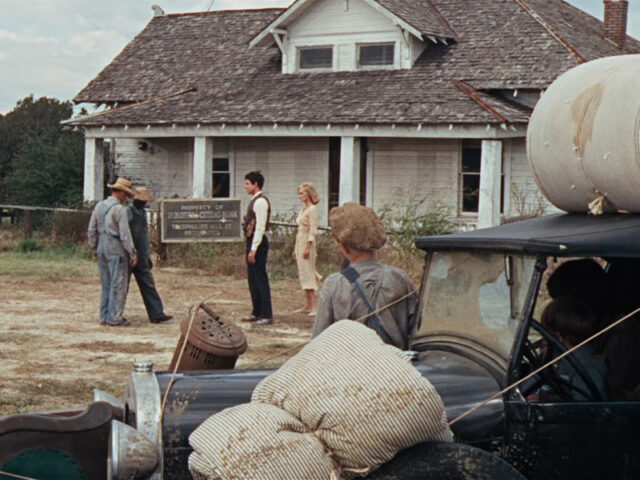
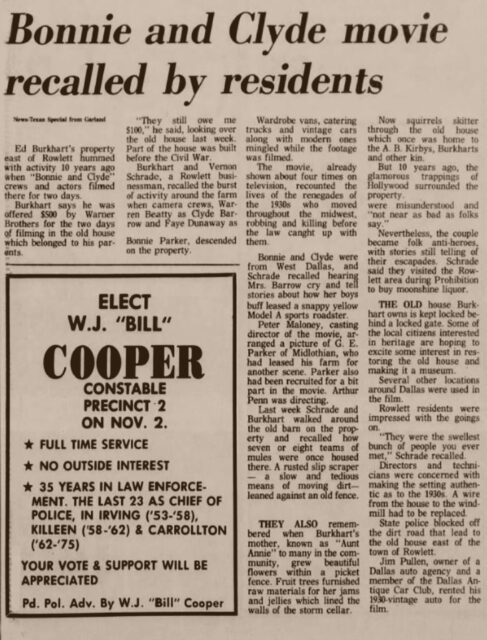
in a late 1970’s edition of the Garland Newspaper.
Click Image to Enlarge
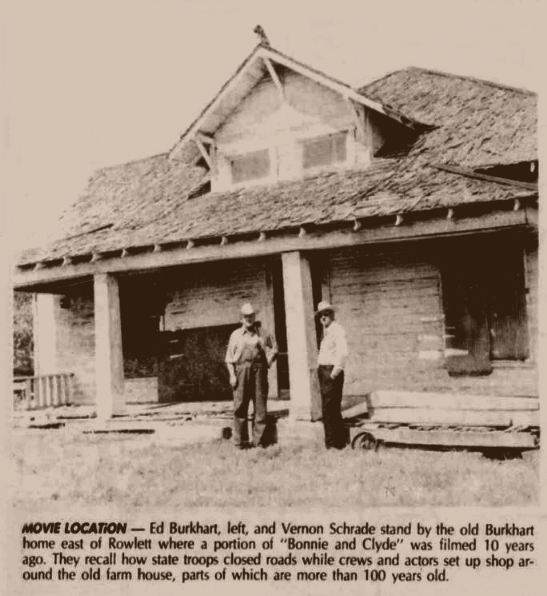
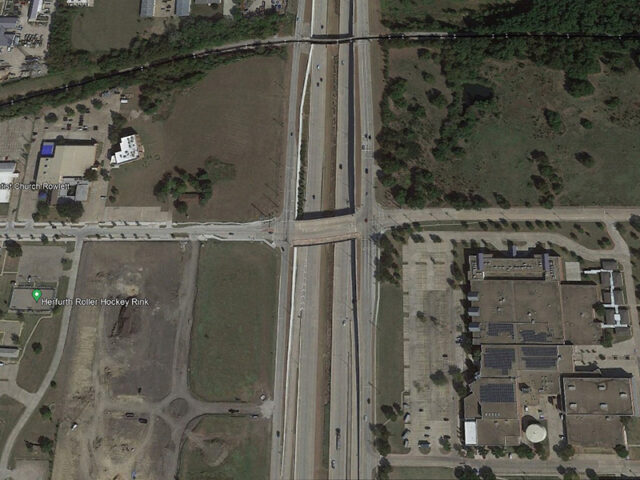
Farmers State Bank
33°11’00.0″N 97°17’15.0″W (33.183336, -97.287506)
The first bank Bonnie and Clyde robbed turned out to be something of a comical disappointment for the criminal duo. The Farmers State Bank, which claimed to have capital of $70,000 on its window signage, had failed just a few weeks before Clyde decided to shake it down. The Great Depression had taken its toll here too, and Clyde had to run away empty-handed; the bank had no money.
The filmmakers traveled to Ponder, Texas to shoot this scene. This diminutive town is located a couple of dozen miles north of Dallas/Fort Worth on a lonely stretch of Farm to Market Road 156. Ponder had then, and it has now, a very modest downtown area, made up of only a few small buildings. One of these is the old Ponder State Bank building, which stood in as the Farmers State Bank shown in the movie. The bank building is still there, and looks much the same as it did in the late 1960s. Across the way, in the adjoining parking lot, is a historical marker which provides a tidy summary of town’s history dating back to the 1850’s. It’s worth a read!
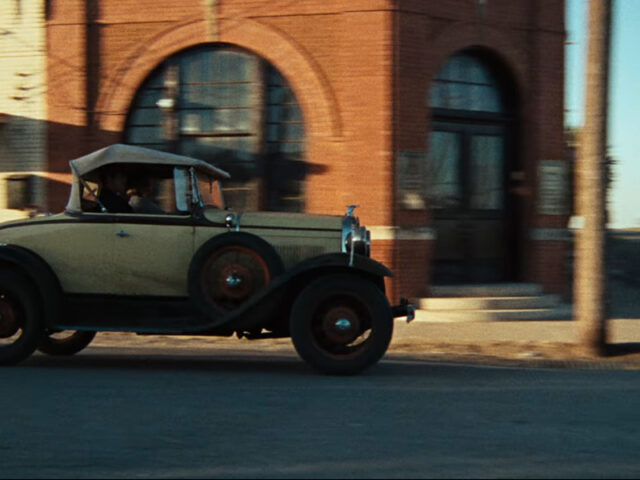
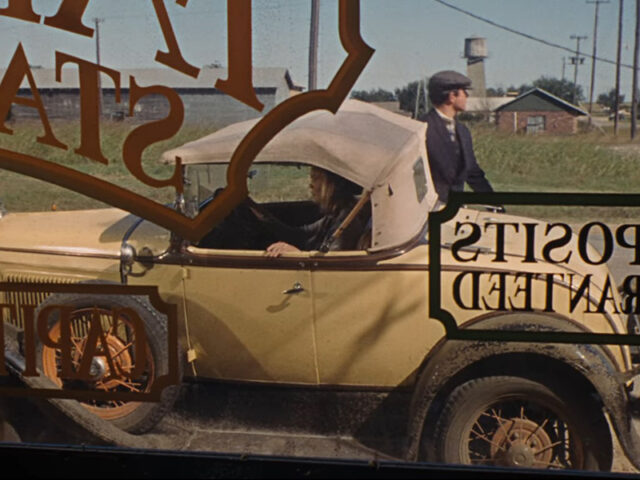
the Farmers State Bank before the inane robbery attempt
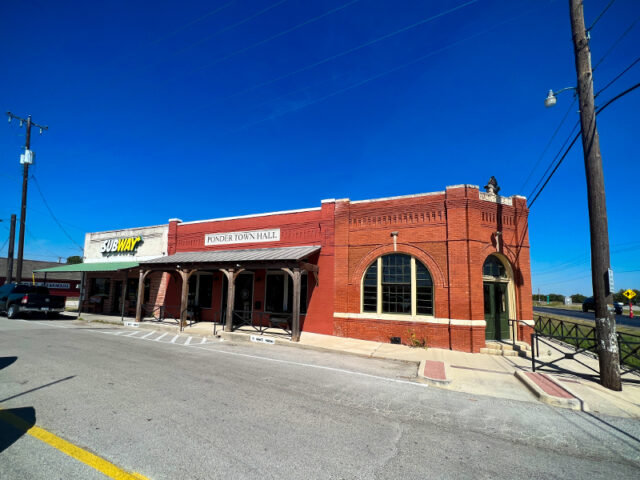
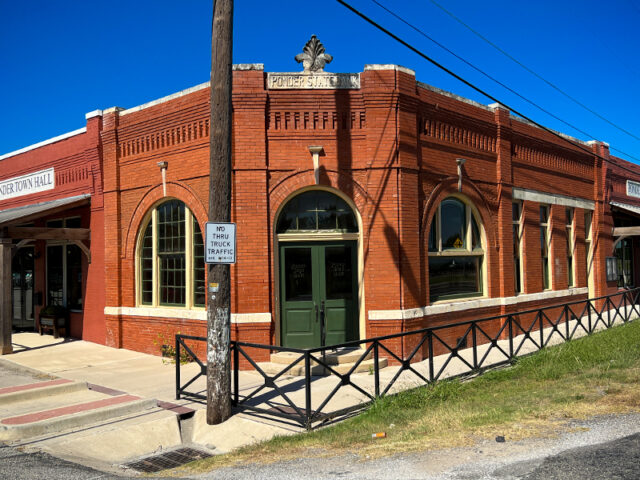
Bonnie and Clyde parked their car in front of the arched window on the right
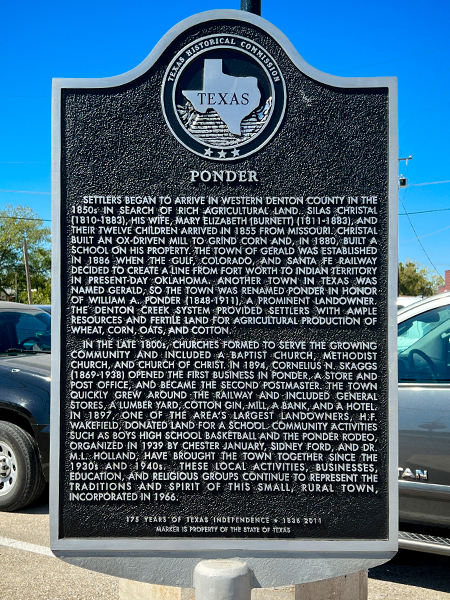
Butcher Fight
32°18’32.7″N 97°00’49.7″W (32.309069, -97.013797)
After the failed bank heist, Bonnie and Clyde fall back on their old standby of robbing grocery stores. In this scene Clyde is in the grocery holding the store owner at gunpoint, while Bonnie waits in the getaway car just outside the front door. Suddenly, the store’s butcher—a big burly man—gets the drop on Clyde and a scuffle ensures. Clyde pistol-whips the butcher, knocking him cold eventually and flees to the car. The couple speed off together, making good their escape, but empty-handed once again.
This scene was shot in downtown Maypearl, a small town located several miles to the south of Dallas/Fort Worth.
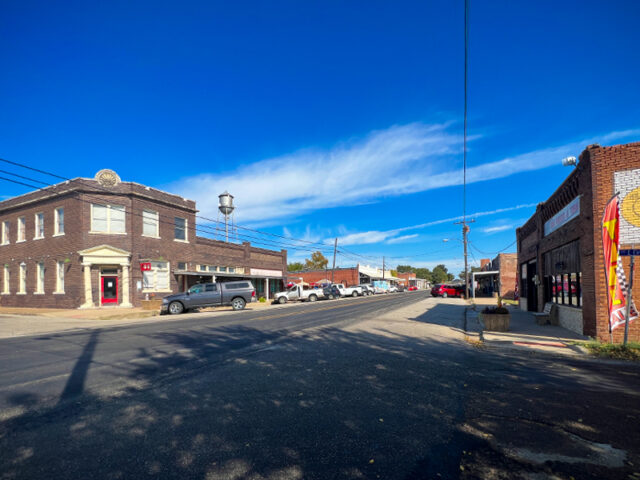
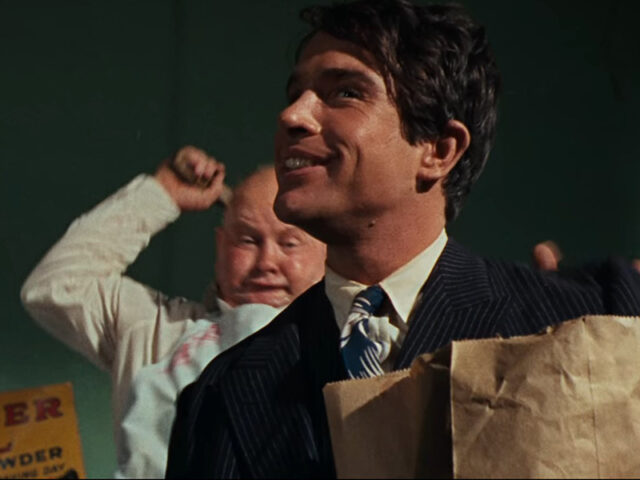
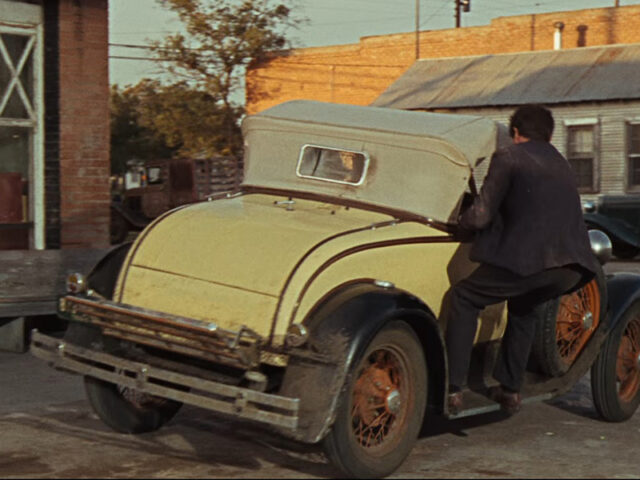
Note the brick, stair-step building in the background
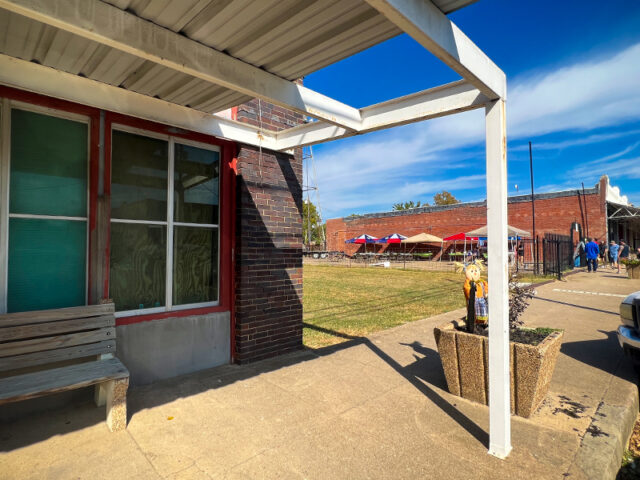
Notice the same stair-step building in the background.
The corrugated metal building is no longer present
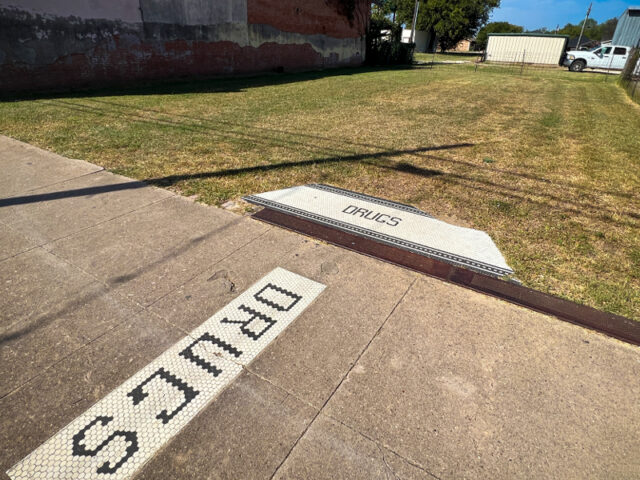
It was a road back in 1966; today it is a vacant lot.
Since then it looks as though a drug store had been constructed here, and then
subsequently torn down—as evidenced by the “DRUGS” mosaic inlaid on the sidewalk.
Old Gas Station
Exact Location Unknown
The next stop for Bonnie and Clyde was an old gas station to have their freshly stolen four-cylinder Ford Coupe serviced for a fuel line problem. The station attendant is a young man named, C.W. Moss—a fictional amalgamation of several real life Barrow Gang members. Bonnie and Clyde are impressed with Moss’s abilities as a mechanic, and persuade him to join them in their criminal endeavors. C.W. agrees, and the three drive off together with a wad of money from the gas station’s cashbox for good measure.
I haven’t been about to identify the exact location of this site, but it is my understanding that this scene was filmed just outside of Waxahachie proper. Rumor is that it’s somewhere on Farm to Market 66. If anyone out there has better info on the whereabout of this gas station—and if it is still standing—please feel free to contact me!
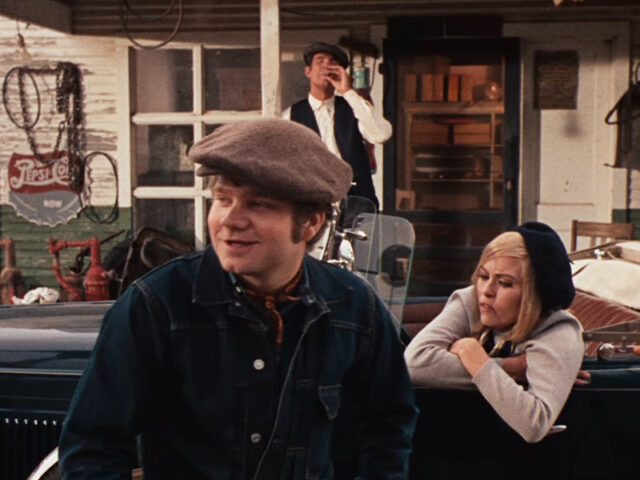
C.W. Moss played by Michael J. Pollard is in the foreground
Mineola Bank
32°30’48.8″N 96°48’17.4″W (32.513555, -96.804833)
A few scenes later, the newly formed gang commits their first bank robbery with C.W. Moss standing in as the getaway car driver. Bonnie and Clyde hold up the Mineola Bank and make out with a bag full of money, but things do not go perfectly. A series of amateurish mistakes result in a shootout, and a bank employee is killed—Clyde’s first murder of the movie. There will be many more.
The Mineola Bank robbery was filmed in Red Oak, Texas—a small town located between Dallas and Waxahachie. The modern day site of the movie scene is not nearly as bustling as it appeared in the film. But the bank building still stands today in a sleepy little corner of Red Oak. See the pictures below…
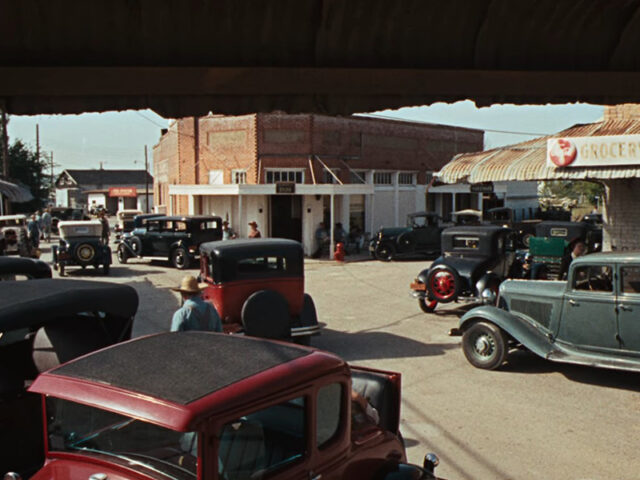
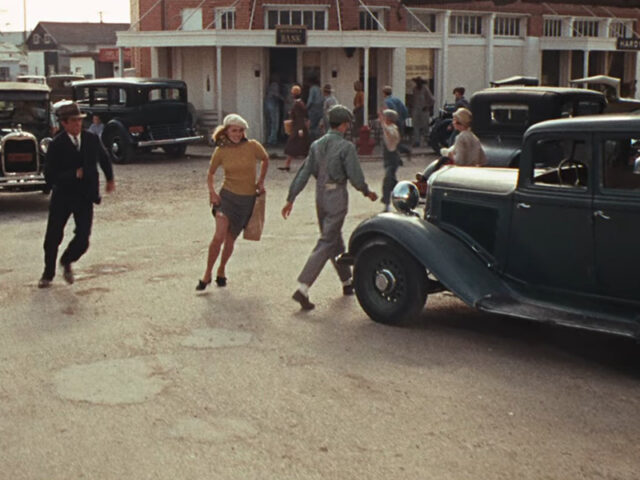
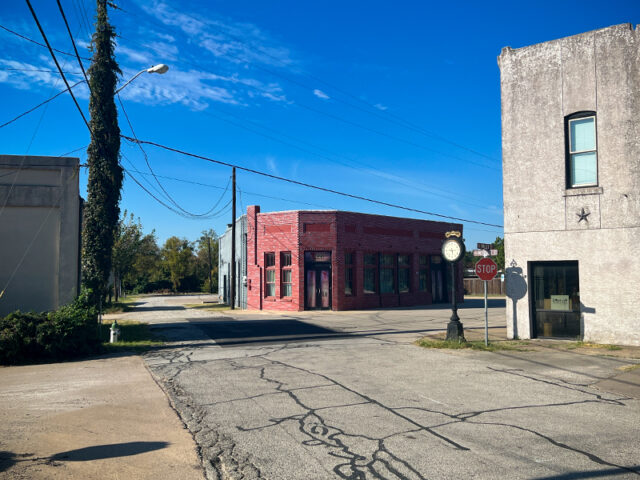
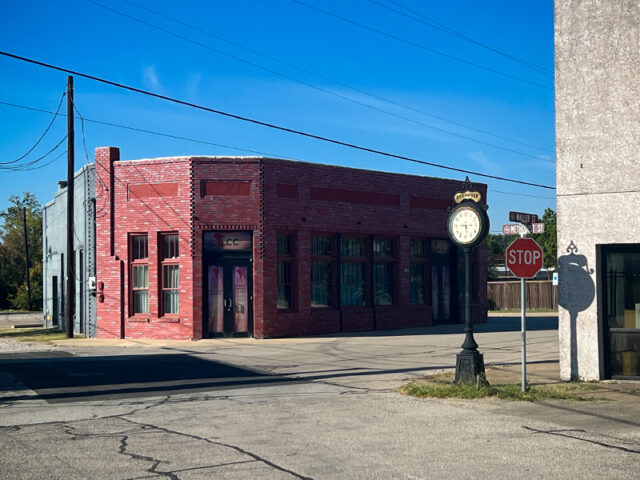
Meeting Buck and Blanche
32°52’23.8″N 96°45’49.5″W (32.873273, -96.763747)
On the run once again, Bonnie, Clyde, and C.W. stop for the night at a roadside motor lodge of the type commonly seen in the 1930’s. The next morning Clyde’s brother, Buck and his wife Blanche, arrive at the lodge and begin their association with the criminal enterprise. The scene was filmed at the old Vickery Court Motor Lodge on Greenville Avenue in Dallas, Texas. The motor lodge—a relic of another time—has long been replaced by a more modern office building. See the accompanying photographs below…
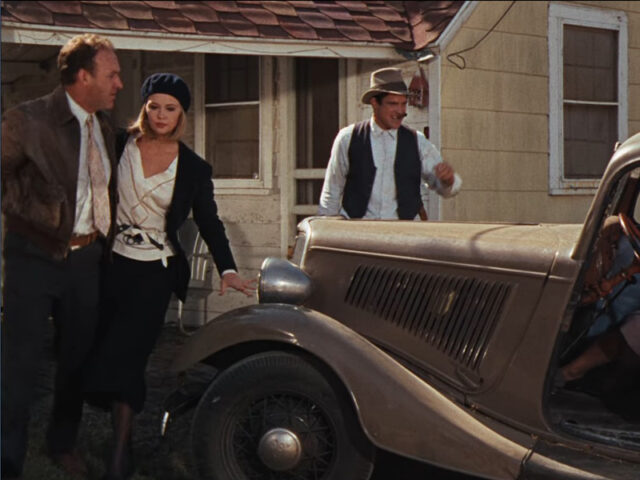
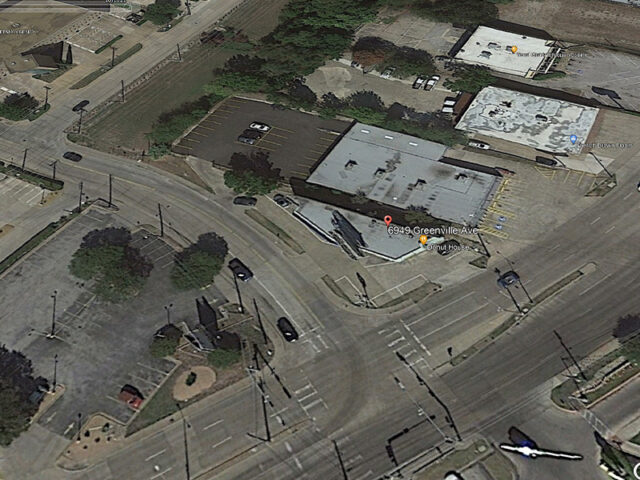
Shootout in Missouri
32°47’57.8″N 96°47’08.9″W (32.799377, -96.785792)
The brothers and their gang leave the motor lodge behind and head off to Missouri for what they expect to be a vacation. Once in Missouri, the gang rents a house to hole up in. But it isn’t long before the law sniffs them out, and the police surround the house. A shootout ensues, several police officers are shot, and the gang just barely escapes.
The Missouri shootout was filmed at a Dallas home located on Caddo street. That house has not survived into the present. A nice set of very modern apartment buildings occupies the address today, but according to Google Earth there was a house still standing on this spot as recently as 2017.
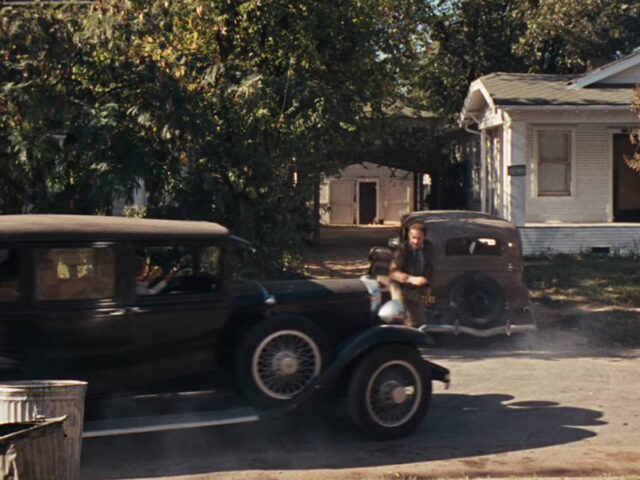
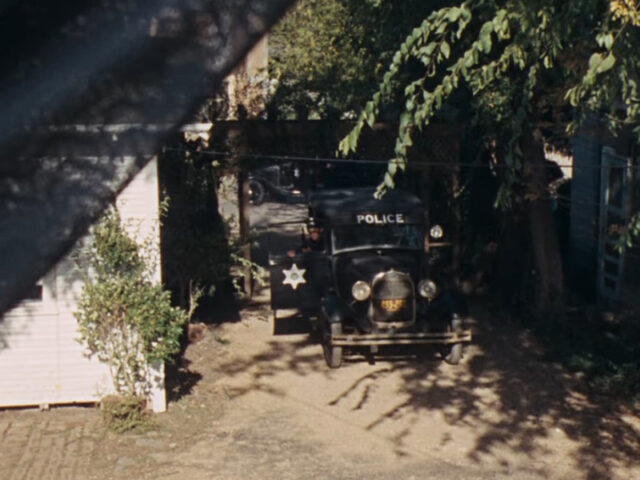
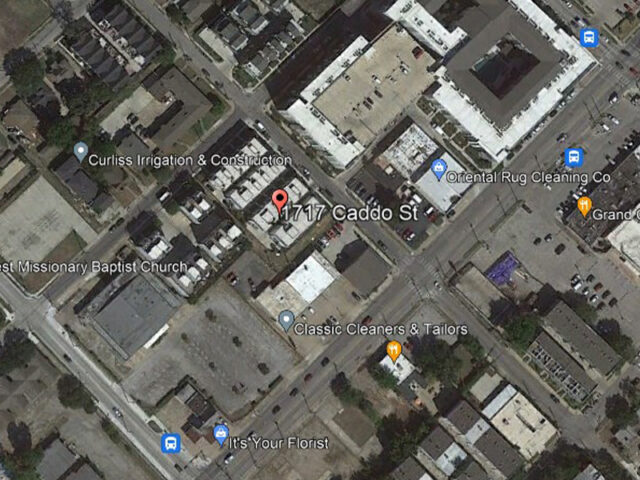
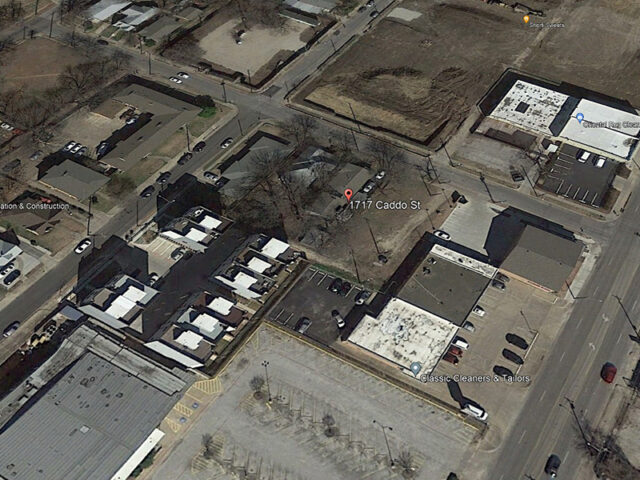
Frank Hamer, Texas Ranger
32°42’20.6″N 96°44’17.3″W (32.705720, -96.738141)
After their narrow escape, the members of the newly formed Barrow Gang find themselves on the run from the law once again. Sticking to back roads in the hopes of avoiding more trouble, the gang stops at a small lake for a quick break. There, Texas Ranger Frank Hamer tries to get the drop on the gang, but Clyde turns the tables and captures the lawman. The gang takes pictures of Hamer—thoroughly humiliating him—and then they load him into a small boat and cast him adrift on the lake. The gang escapes capture once more, but they will meet Frank Hamer again.
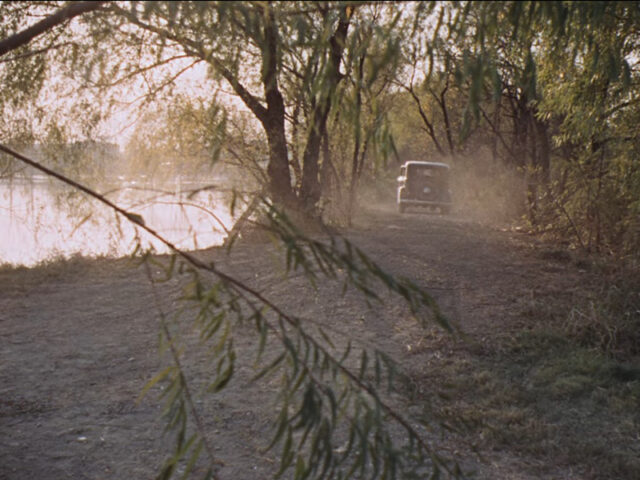
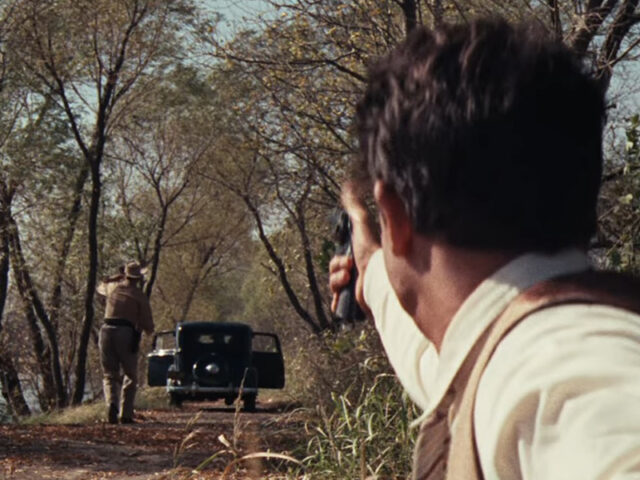
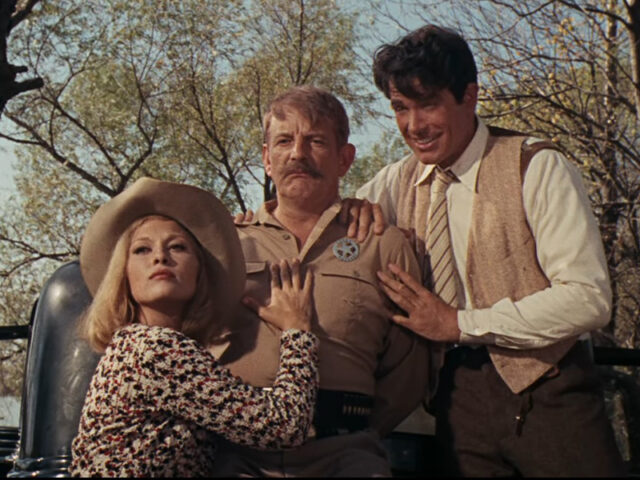
Frank Hamer was played by Denver Pyle of
Grizzly Adams (Mad Jack) and Dukes of Hazzard (Uncle Jesse Duke) fame
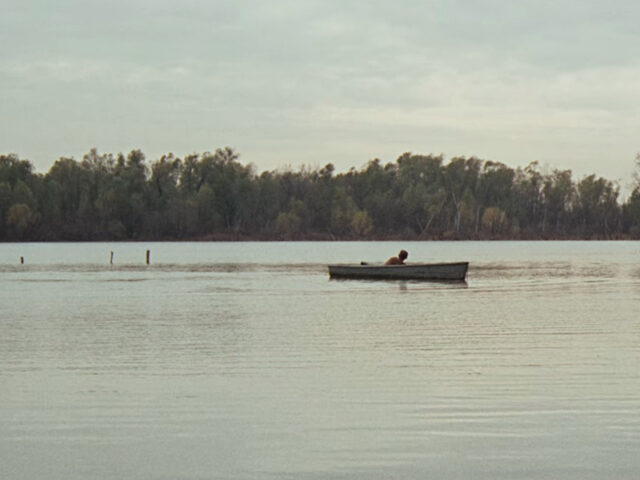
The Frank Hamer scene was filmed at Little Lemmon Lake in Dallas, Texas. Little Lemmon Lake was more remote and unkempt in 1966, but the lake was acquired by Dallas County as part of the Joppa Preserve in the 1980’s, and the property was then leased to the City of Dallas for maintenance. A park system with trails, benches, and other amenities was installed around the lake, which tidied up its appearance a bit compared to the way it looked when the movie was made. The location were this scene was filmed is easily accessible and still readily apparent.
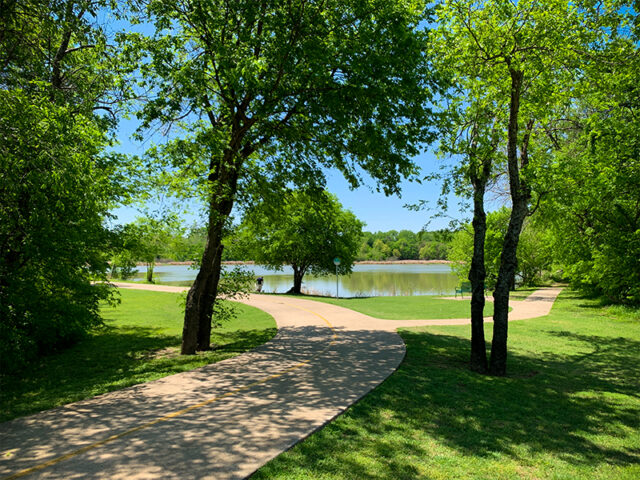

Farmers and Merchant Bank
33°23’48.5″N 96°57’41.4″W (33.396807, -96.961510)
It’s at this point in the movie when the Barrow Gang decide it’s time to rob another bank. On this occasion Bonnie and Clyde—with the help of Buck, Blanche, and C.W.—have a little better success, and they speed away from the heist with the police hot on their tail. An extended car chase follows, but the local police abandon the chase once the Barrow Gang crosses the border into Oklahoma. Bonnie, Clyde, and their gang survive to rob another day!
This scene was filmed on the town square in Pilot Point, Texas. Pilot Point is a small town several miles north of Denton on US Highway 377. The residents quaint little town values their role in the making of the Bonnie and Clyde movie, and they celebrate their contribution every October. A fall festival known as Bonnie and Clyde Days featuring an antique car show and movie scene reenactments is held on the historic Pilot Point town square. See the pictures, link, and video below for more information…
Pilot Point Texas – Bonnie and Clyde Days
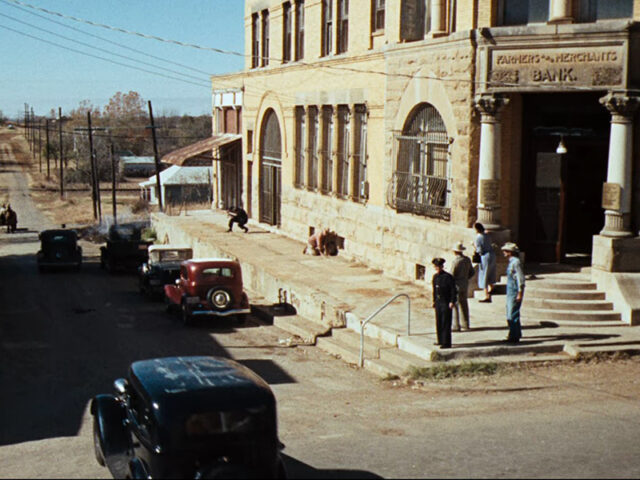
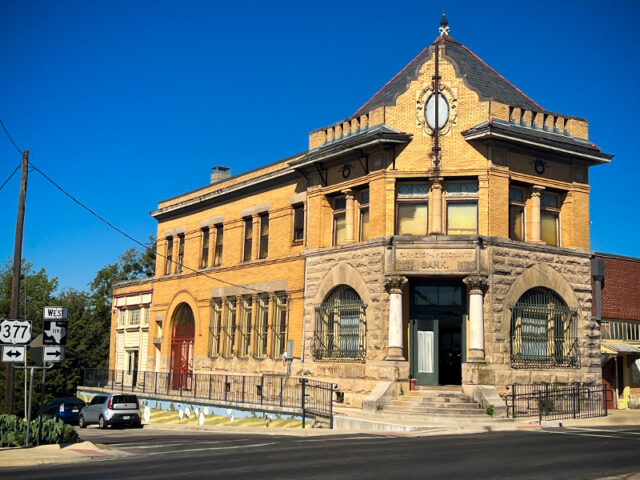
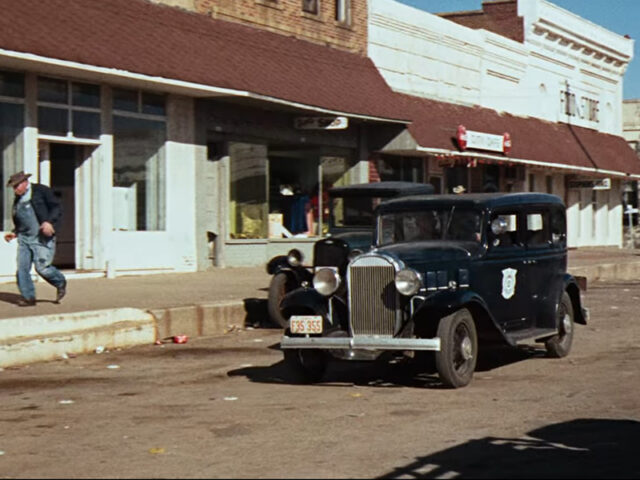
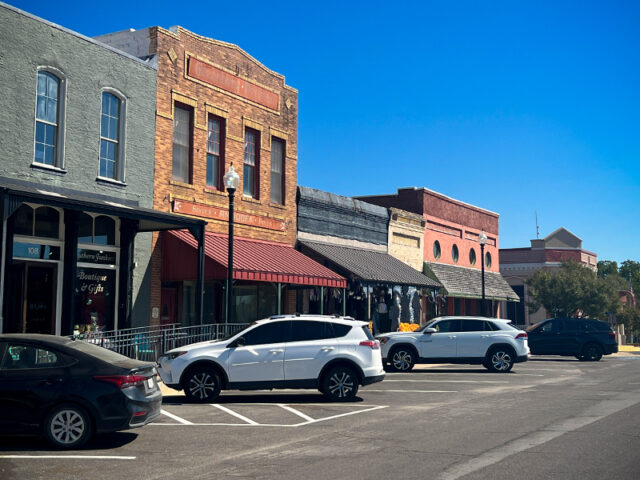
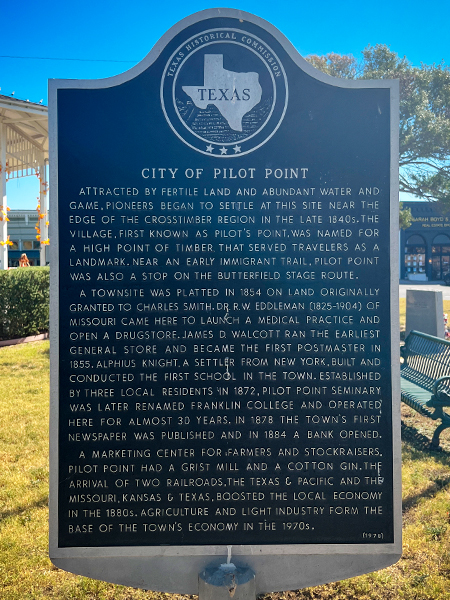
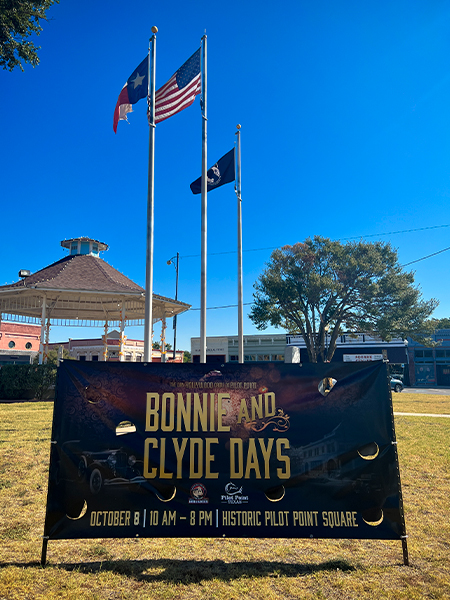
the upcoming Bonnie and Clyde Days festival
Undertaker’s House
32°37’33.1″N 96°27’14.7″W (32.625864, -96.454084)
In need of a new car, the Barrow Gang goes into a residential neighborhood to steal one. The victim this time is the town undertaker played by Gene Wilder in his first movie role. This scene was setup at a house in Crandall, Texas just east of Dallas. Today there is only a vacant lot where the house once stood, but according to Google Earth the home used in the movie was still present as recently as 2019.
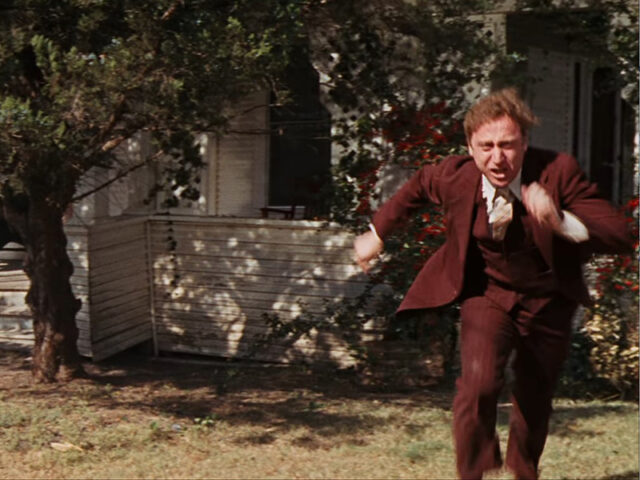
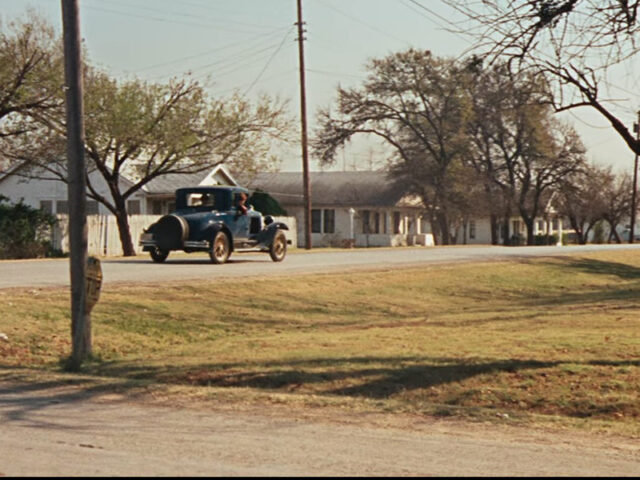
This road leads away from the intersection where the house is located
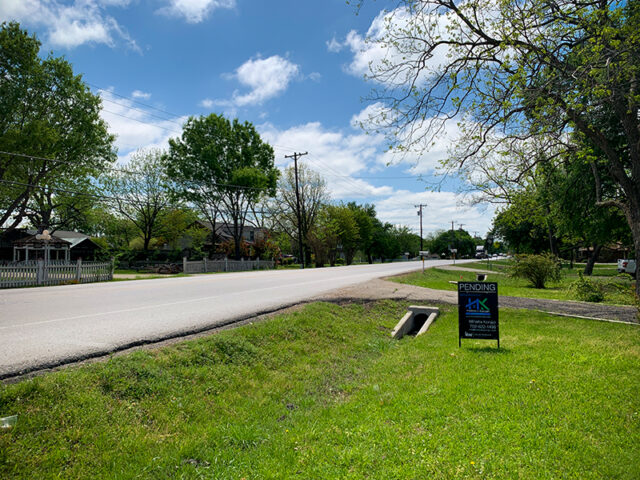
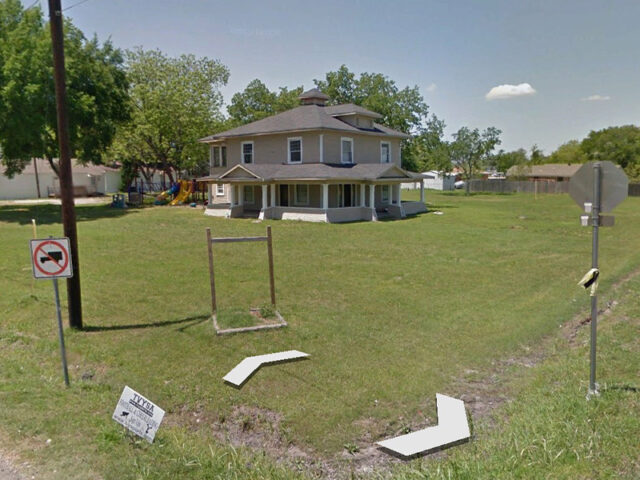
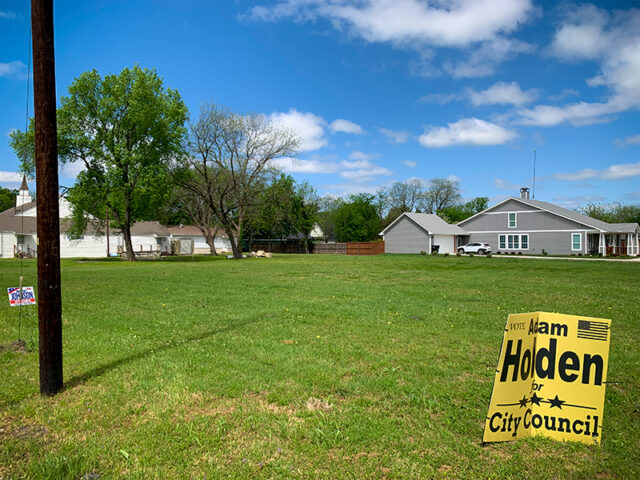
Parker Family Reunion
Exact Location Unknown
Perhaps sensing her impending doom, Bonnie begs Clyde to take her home to see her mother and family. Against his better judgement Clyde relents and agrees. The Parker family reunion scene is thought to have been filmed at a gravel quarry located in or near Red Oak, Texas. I was unable to determine the exact location. If anyone has additional information about its whereabouts, I’d love to hear from you!
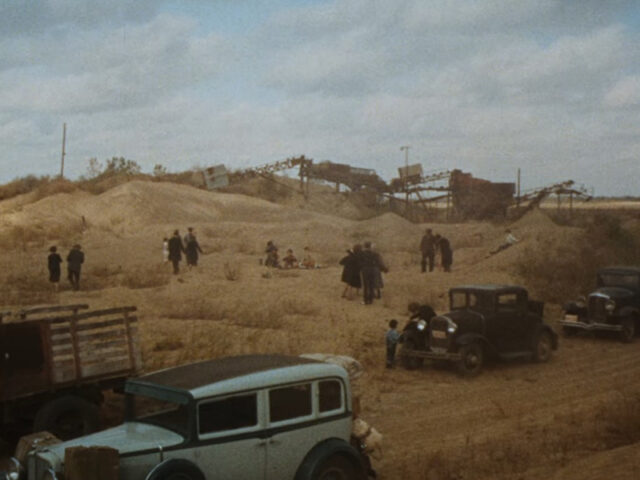
Ring of Fire Shootout
Exact Location Unknown
A few scenes later the police find the Barrow Gang hiding out in a motor lodge and they move in to take on the criminals. A wild and reckless gun fight ensues, and Buck Barrow is seriously wounded as the gang attempts to make their escape. The criminals somehow manage to pile into a car and speed away from the battle. Along the way, they steal another car before stopping in a remote area to spend the night and regroup.
The next morning the Barrow Gang again finds themselves surround by lawmen. Another voluminous amount of gunfire is exchanged, at last doing in Buck Barrow. Blanche refuses to leave his side and is captured by the police. Meanwhile Bonnie, Clyde, and C.W. somehow effect one more improbable escape.
I was unable to determine the exact location where this scene was shot. Most of the clues that I discovered suggest that it was filmed in the Dallas’ Joppa Preserve somewhere close to Little Lemmon Lake mentioned earlier in this article. Another source alludes to the possibility that it was recorded near Lake Ray Hubbard in close proximity to the old Burkhart House in Rowlett. The scene in the movie that follows the Ring of Fire Shootout has Bonnie and Clyde visiting a lakeside encampment. The lake looks very much like a North Texas reservoir to me, so that may be a clue—or maybe not. Again, if anyone has more information about either of these scenes please feel free to contact me!
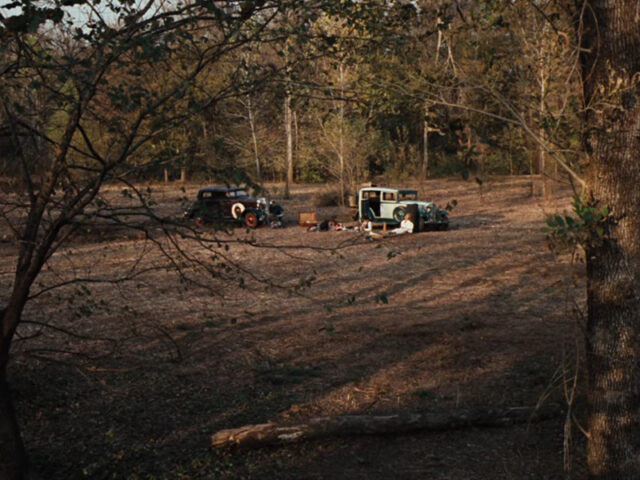
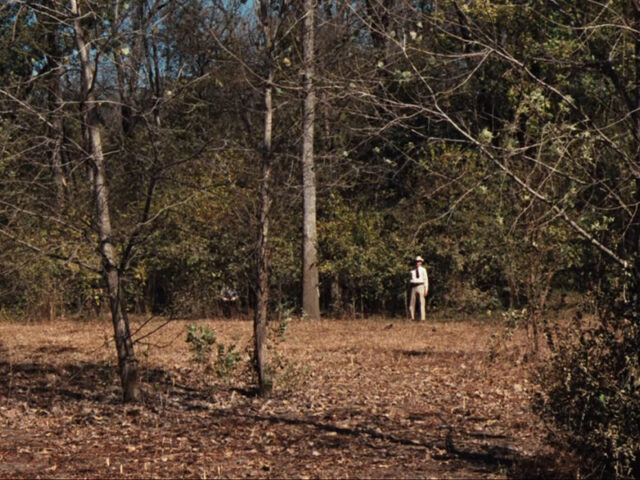
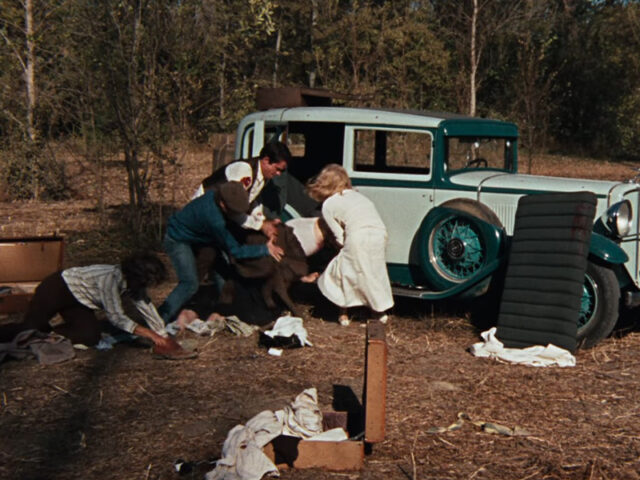
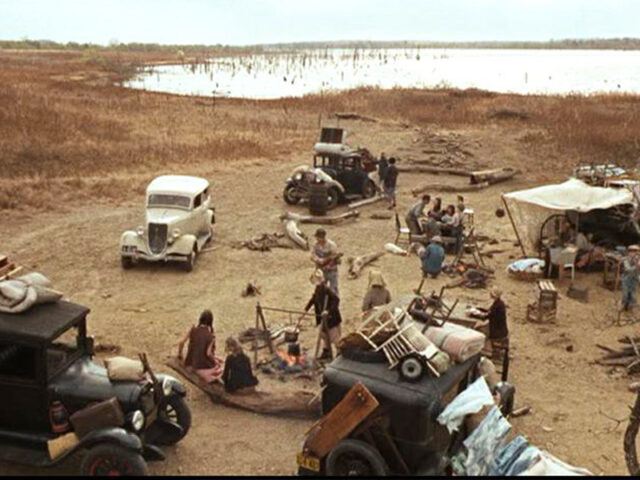
Downtown Arcadia
32°37’39.8″N 96°27’20.9″W (32.627722, -96.455809)
Bonnie and Clyde—both seriously injured from the gun battle—retreat to C.W. Moss’ father’s house in Louisiana. The criminals do their best to recuperate and regroup, but by now bigger things have been set in motion. Bonnie and Clyde’s fate had been sealed and it was only a matter of time before the reckoning.
This—the last of the scenes filmed in North Texas—was shot in Crandall, Texas just a few miles east of the Dallas/Fort Worth metroplex. Downtown Crandall was used as a stand in for the fateful location of Arcadia, Louisiana. By this time in the movie, Bonnie and Clyde had recovered from their wounds and were beginning to dream of a more normal life for themselves. On this day the couple decide to drive into town to do a little shopping, and perhaps they had begun to let their guard down a bit as well. The end of the movie is drawing near.

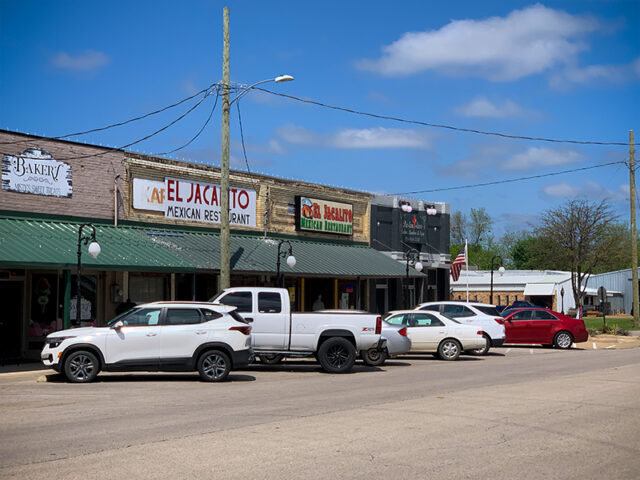
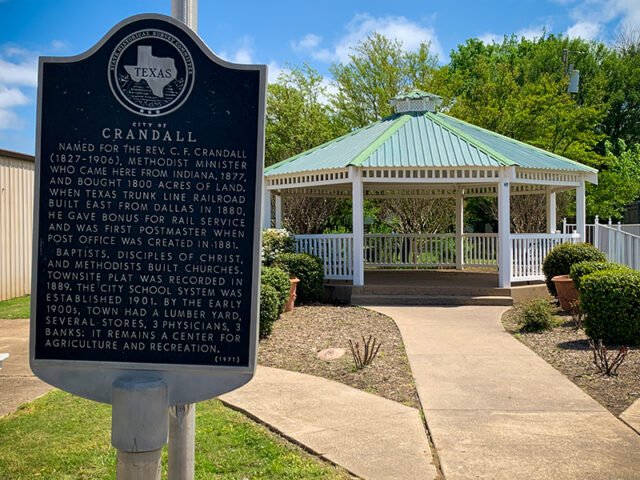
The End and the Aftermath
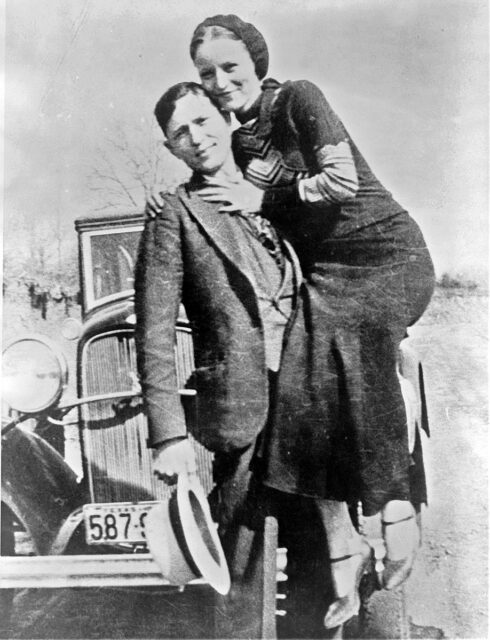
As I’m sure you know, eventually the law did catch up with Bonnie and Clyde, and the two criminals did not survive the encounter. That was the case both in the movie and in real life. I concluded my documentation for this article by stopping by the actual gravesites of both Bonnie Parker and Clyde Barrow. Both were buried here in the DFW metroplex, each in different cemeteries. I was somewhat surprised to learn that the legend of Bonnie and Clyde has endured even into the present day. There are still people who look to Bonnie and Clyde as folk heroes, and both gravesites were found to be festooned with fresh flowers and other tokens of affection and admiration.
Bonnie Parker Gravesite
32°52’02.9″N 96°51’50.4″W (32.867476, -96.863986)
Bonnie Parker’s gravesite is located in Crown Hill Memorial Park in Dallas, Texas. When I arrive on a warm October morning—just a few days after her birthday—I found her headstone decorated with flowers and other colorful trinkets. Clear evidence that her legend lives on.
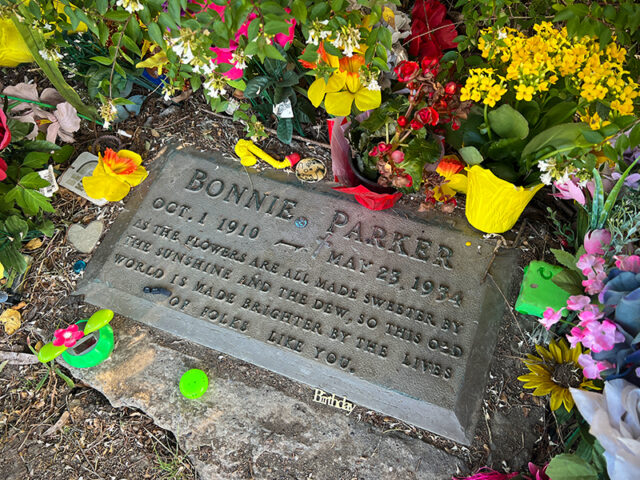
AS THE FLOWERS ARE ALL MADE SWEETER BY
THE SUNSHINE AND THE DEW, SO THIS OLD
WORLD IS MADE BRIGHTER BY THE LIVES
OF FOLKS LIKE YOU.
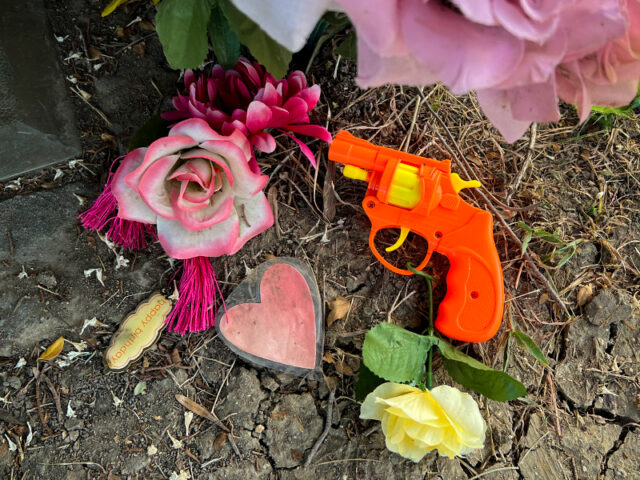
Clyde Barrow Gravesite
32°45’56.9″N 96°50’47.6″W (32.765809, -96.846561)
Clyde Barrow’s grave is located in Western Heights Cemetery—also in Dallas—and is just a short drive from Bonnie’s resting place. As was the case with Bonnie headstone, Clyde’s gravesite was also adorned with a colorful array of flowers (though not to the same extent as Bonnie’s) making it unique and easy to find in the cemetery. Clyde’s headstone—which he shares with his brother, Buck—reads, “Gone but not forgotten.” Truer word were never written.
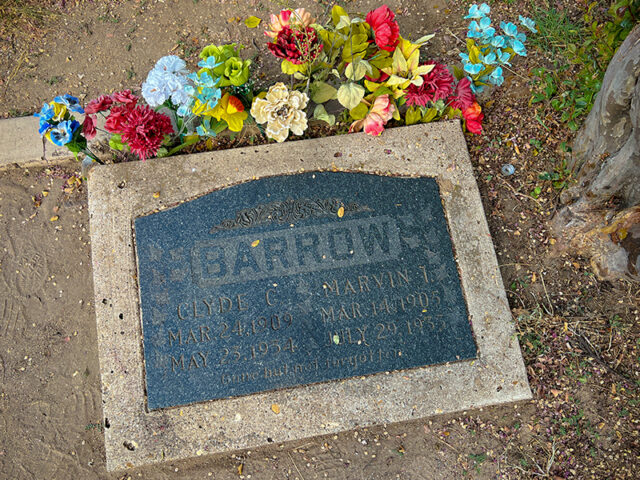
CLYDE C. MARVIN I.
MAR. 24, 1909 Mar. 14, 1905
MAY 23, 1934 July 29, 1933
Gone but not forgotten
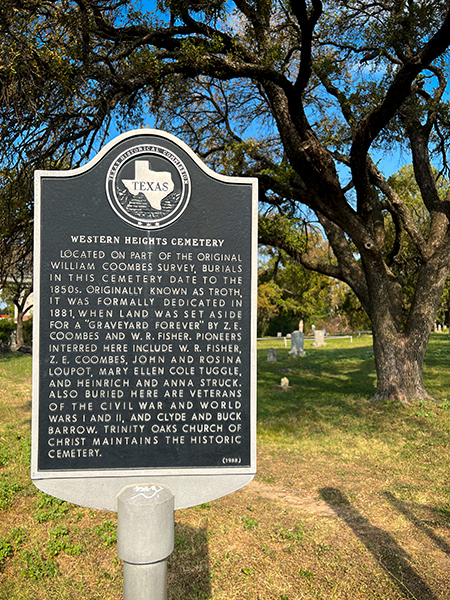
Southwest Regional Premiere
33°12’52.8″N 97°08’04.1″W (33.214678, -97.134480)
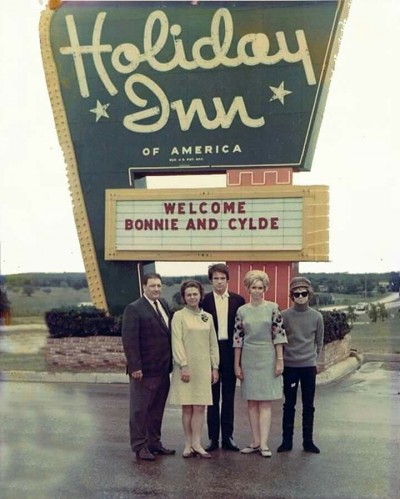
at the Denton Holiday Inn
In September of 1967 several of the movie’s stars—including Warren Beatty, Estelle Parsons, and Michael J. Pollard—returned to North Texas to promote Bonnie and Clyde’s regional premier. The stars spent much of the day with speaking engagements and radio and television interviews. Later the group made time to stop by filming sites in Ponder and Pilot Point for a quick visit. Afterwards it was back to Denton to participate in a vintage car parade as a featured part of the North Texas Sate Fair. Finally, the actors made their way to the Campus Theater for the 7:30 showing. The stars arrived a bit late, but still to much fanfare. A more comprehensive telling of the autumn day in Denton County 55years ago can be found by following the UNT Media Library Blog included below. It’s a very interesting read…
UNT Media Library Blog – Hollywood Invades North Texas: The Making of Bonnie and Clyde (1967)
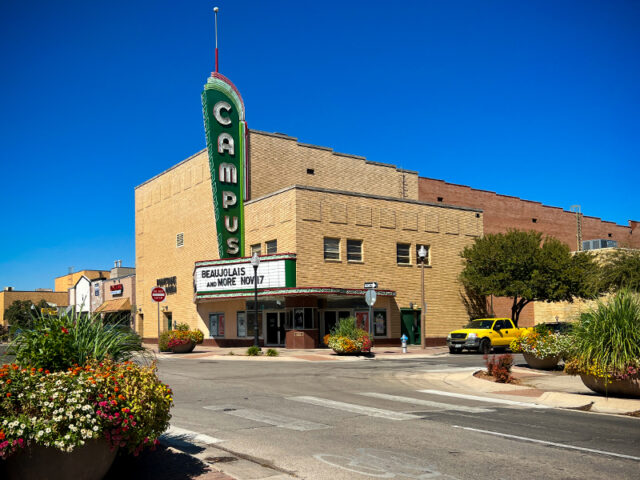
The site of the Southwest Regional Premier of Bonnie and Clyde in 1967
More Movies!
The story of Bonnie and Clyde has been told in a few other movies and from a few other points of view in the years since 1967. Some more serious and true to history than others. Between Netflix and Amazon Prime there is a nice collection of Bonnie and Clyde movies available for streaming if you’re inclined to watch…
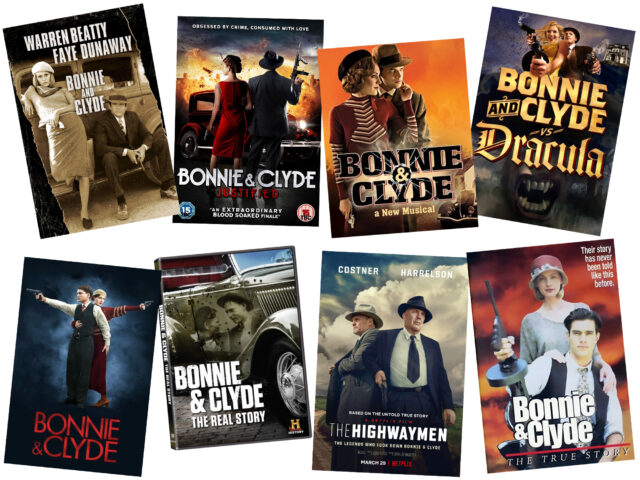
One Last Aside…
And finally, it is worth noting that while growing up in Lewisville, Texas—just north of Dallas—I occasionally heard stories that Bonnie and Clyde had robbed a bank in our old downtown. It turns out that those yarns were only pseudo-true. I just recently learned that it was actually a former associate of Bonnie and Clyde who pulled the Lewisville First National Bank job, and not the infamous criminal duo. The details of the bank heist and the fate of the robber—Raymond Hamilton—are documented on the City of Lewisville’s official website. You can read more about it by following the link below…
City of Lewisville – BONNIE & CLYDE GANGSTER ROBS LEWISVILLE BANK


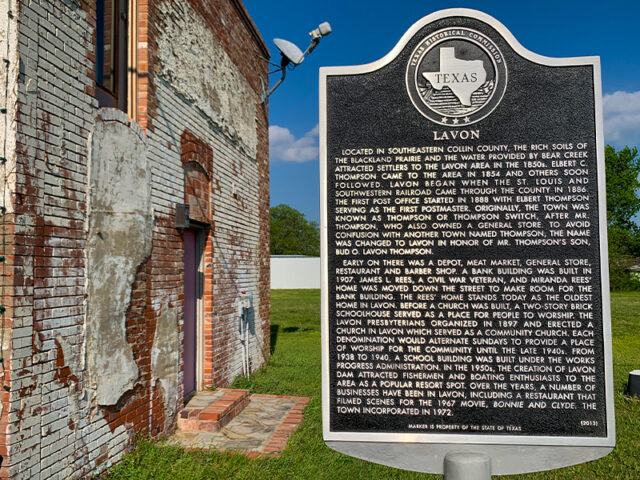
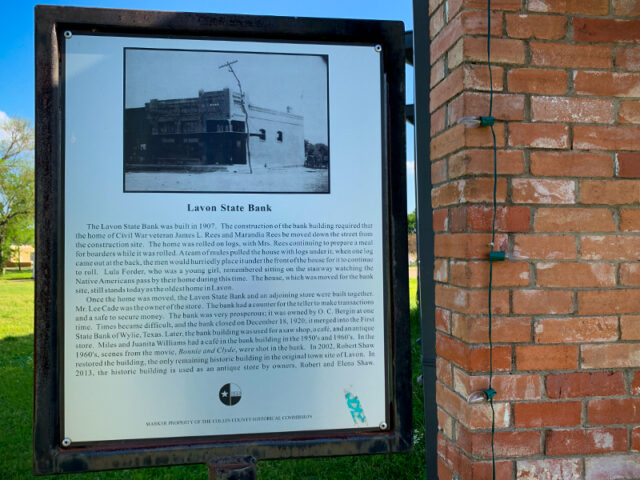
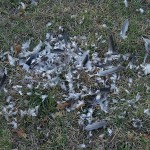
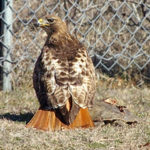


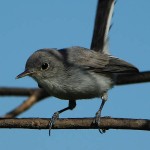
Interesting Chris. I have actually been at some of these locations and seen the same buildings, without knowing what I was seeing! My father-in-law lived in Maypearl for a time in his youth, and again in the 1970s. I have been in Pilot Point many times, and Ponder as well. Red Oak, also, where my sister lived from 1980 until her death in 2002. My niece lives there today.
A comment about “Bonnie Parker’s mother’s house”: A nice old Victorian in the town where my wife Bonnie was born was used in the movies, as you related. But Bonnie Parker was a child of the West Dallas slums. She attended the Eagle Ford School just off Singleton Boulevard in the the community of the same name. The school, no longer active, still stands, and can be seen on land SE of the intersection of Singleton and Loop 12 in West Dallas. There would have been no houses of the stature of the one in the movie in that neighborhood in the 1930s. The residences would have been shotguns and crackerboxes, the streets and roads unpaved. Singleton Boulevard at the time was called, “The Eagle Ford Pike.”
I have read, but have no actual documentation, that Parker and Barrow met in the restaurant in Old East Dallas, at the curve on Swiss Avenue, where Parker was a waitress and Barrow, then a small-time hood, hung around.
Of course, Hollywood feels no obligation to historical truth. Parker did indeed waitress in that restaurant, I believe called The Streetcar because the intersection was a crossing and turnaround for two streetcar lines. But my memories of my readings may be faulty.